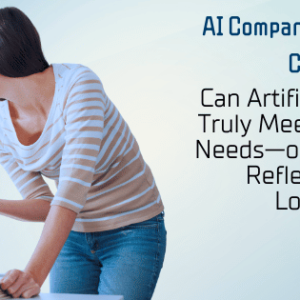In today’s fast-paced world, businesses are constantly seeking ways to improve efficiency and stay competitive. One of the most exciting advancements in technology is Artificial Intelligence (AI). AI can help businesses automate tasks, analyze data, and make informed decisions, transforming the way they operate. This blog post will guide you through implementing AI in your company in five easy steps.
Agenda
- Understanding AI and its business potential
- Identifying areas where AI can add value
- Building a team or collaborating with experts
- Choosing the right tools, frameworks, and technologies
- Implementing, testing, and scaling AI solutions
Communicating the Role of AI in Your Business
When introducing AI to your team or stakeholders, it’s essential to explain how it can enhance productivity and decision-making. Use simple language and real-world examples to illustrate its benefits. Highlight that AI is not about replacing jobs but empowering employees to focus on more strategic tasks.
Step 1: Understanding AI and Its Business Potential
Before diving into implementation, it’s crucial to understand what AI is and how it can benefit your business.
- What is AI?
AI refers to computer systems that can perform tasks typically requiring human intelligence, such as learning, reasoning, and problem-solving. - Why Use AI?
Implementing AI can lead to increased efficiency by automating repetitive tasks, improving accuracy in data analysis, and supporting better decision-making processes.
Step 2: Identifying Areas Where AI Can Add Value
Next, assess your business operations to identify where AI can make a difference:
- Customer Service:
Implement chatbots for instant responses to customer inquiries. - Data Analysis:
Use AI tools to analyze large datasets for insights that inform business strategies. - Supply Chain Management:
Optimize logistics with predictive analytics to forecast demand and streamline operations.
Step 3: Building a Team or Collaborating with Experts
Having the right team is vital for successful AI implementation:
- In-House Team:
Consider training existing employees on AI technologies or hiring new talent with expertise in machine learning and data science. - Collaboration:
Partner with consultants or firms specializing in AI to leverage their knowledge and experience.
Step 4: Choosing the Right Tools, Frameworks, and Technologies
Selecting appropriate tools is key to effective implementation:
- AI Platforms:
Explore platforms like Google Cloud AI or Microsoft Azure that offer robust tools for building and deploying AI models. - Frameworks:
Utilize frameworks such as TensorFlow or PyTorch for developing machine learning applications.
Step 5: Implementing, Testing, and Scaling AI Solutions
Once you have your team and tools ready, it’s time to implement:
- Pilot Projects:
Start with small-scale projects to test the effectiveness of your AI solutions before a full rollout. - Feedback Loop:
Gather feedback from users to refine the system continuously. - Scaling Up:
Once successful pilot projects are established, gradually expand the use of AI across other areas of your business.

Use Cases and Examples
Real-world examples can inspire your journey into AI:
- Coca-Cola:
The company uses an AI-powered marketing platform called Albert to optimize digital advertising campaigns, leading to improved ROI. - UPS:
UPS implemented an AI logistics platform called ORION that optimizes delivery routes based on real-time data analysis. - Unilever:
Unilever employs an AI recruitment tool called HireVue that analyzes video interviews to enhance candidate selection efficiency.
Common Challenges
While implementing AI can be transformative, challenges may arise:
- Lack of Expertise:
Many companies struggle due to insufficient internal knowledge about AI technologies. Overcome this by investing in training programs or hiring specialists. - Data Privacy Concerns:
Ensure compliance with data protection regulations when handling sensitive information for training your models. - Infrastructure Limitations:
Outdated systems may hinder integration consider upgrading your IT infrastructure for smoother transitions.
What is an AI Implementation Course?
An AI implementation course is a structured program designed to teach businesses how to integrate AI technologies into their operations effectively. These courses cover the fundamentals of AI, its applications in various industries, and best practices for successful implementation.
Are you ready to explore how AI for Business can revolutionize your company? Start by assessing your current processes and identifying areas where automation could save time and resources.
Conclusion
AI has the potential to transform any business by enhancing efficiency and decision-making capabilities. Embrace this technology today, and watch as it opens new doors for growth and innovation! For more resources on implementing AI in your company, consider taking an online course or reading expert blogs on the subject.
By following these five steps, you’ll be well on your way to integrating artificial intelligence into your business strategy!












